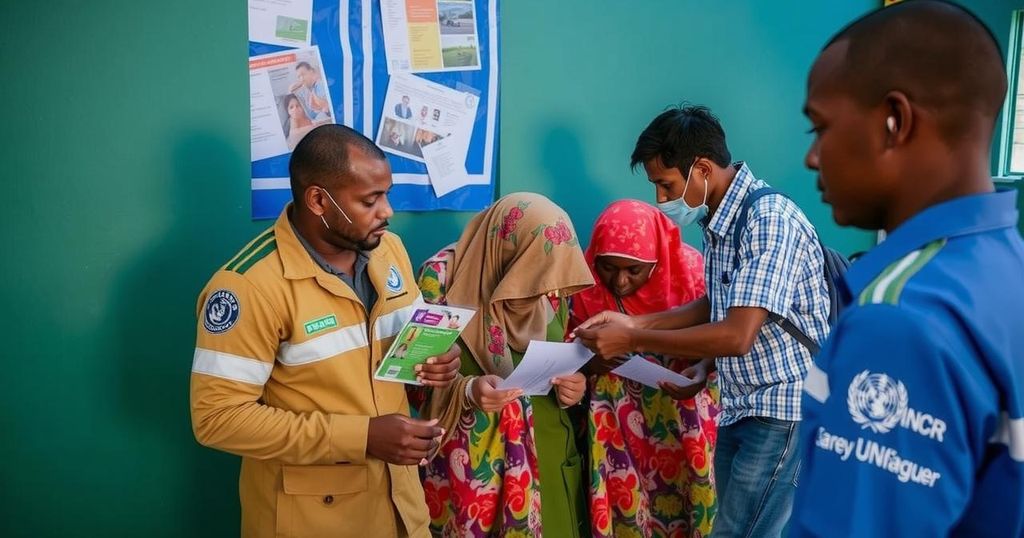UNHCR Operational Update: Humanitarian Challenges in Mozambique, September/October 2024

Mozambique currently hosts 25,000 refugees and asylum seekers, with over 716,000 internally displaced due to violence and climate change. UNHCR collaborates with stakeholders to deliver vital services, while emphasizing safe and dignified return for displaced individuals. The organization also supports the inclusion of these populations within national services, particularly in light of recent climate-induced challenges.
The UN High Commissioner for Refugees (UNHCR) provides an operational update on the situation in Mozambique, highlighting the challenges faced by approximately 25,000 refugees and asylum seekers. Additionally, around 716,878 individuals remain internally displaced due to violence from non-state armed groups and severe climate impacts, making Mozambique one of the most affected nations globally. The dual occurrences of Tropical Cyclone Freddy in early 2023, following the devastation of Tropical Cyclone Gombe, impacted over a million people, resulting in significant infrastructure damage and displacing approximately 184,000 individuals.
UNHCR collaborates with various stakeholders, including the national government, to deliver critical protection services and assistance to refugees, asylum seekers, internally displaced persons (IDPs), IDP returnees, and local communities. Emphasizing resilience-building and sustainable solutions to displacement, UNHCR has seen 610,981 persons return to their regions of origin over the past year, although many encounter inadequate services and poor living conditions upon their return.
The organization maintains that all processes for the return of refugees and IDPs must be conducted in an informed, safe, voluntary, and dignified manner. Furthermore, UNHCR advocates for the integration of refugees and IDPs within national services and systems, including the incorporation into national data systems and climate contingency planning. Concurrently, there is an increased focus on engaging with development and peace-building entities to enhance the programming geared towards the inclusion of displaced and returned populations.
Mozambique is currently facing significant humanitarian challenges, driven largely by conflict and environmental crises. The country’s struggle with violence inflicted by non-state armed groups has led to a high number of internally displaced individuals. Simultaneously, Mozambique has been severely impacted by climate events, such as Tropical Cyclones Freddy and Gombe, which have further exacerbated the already dire humanitarian situation. The UNHCR plays a crucial role in addressing these challenges by providing assistance and advocating for the rights and integration of displaced populations.
In conclusion, the update from UNHCR underscores the urgency of addressing the plight of refugees and internally displaced persons in Mozambique. The ongoing violence and climate-related disasters necessitate a coordinated response that ensures the safety, dignity, and rights of displaced individuals. UNHCR’s efforts to integrate these populations into national systems and engage with development actors are vital for fostering resilience and facilitating sustainable recovery in the affected communities.
Original Source: reliefweb.int







